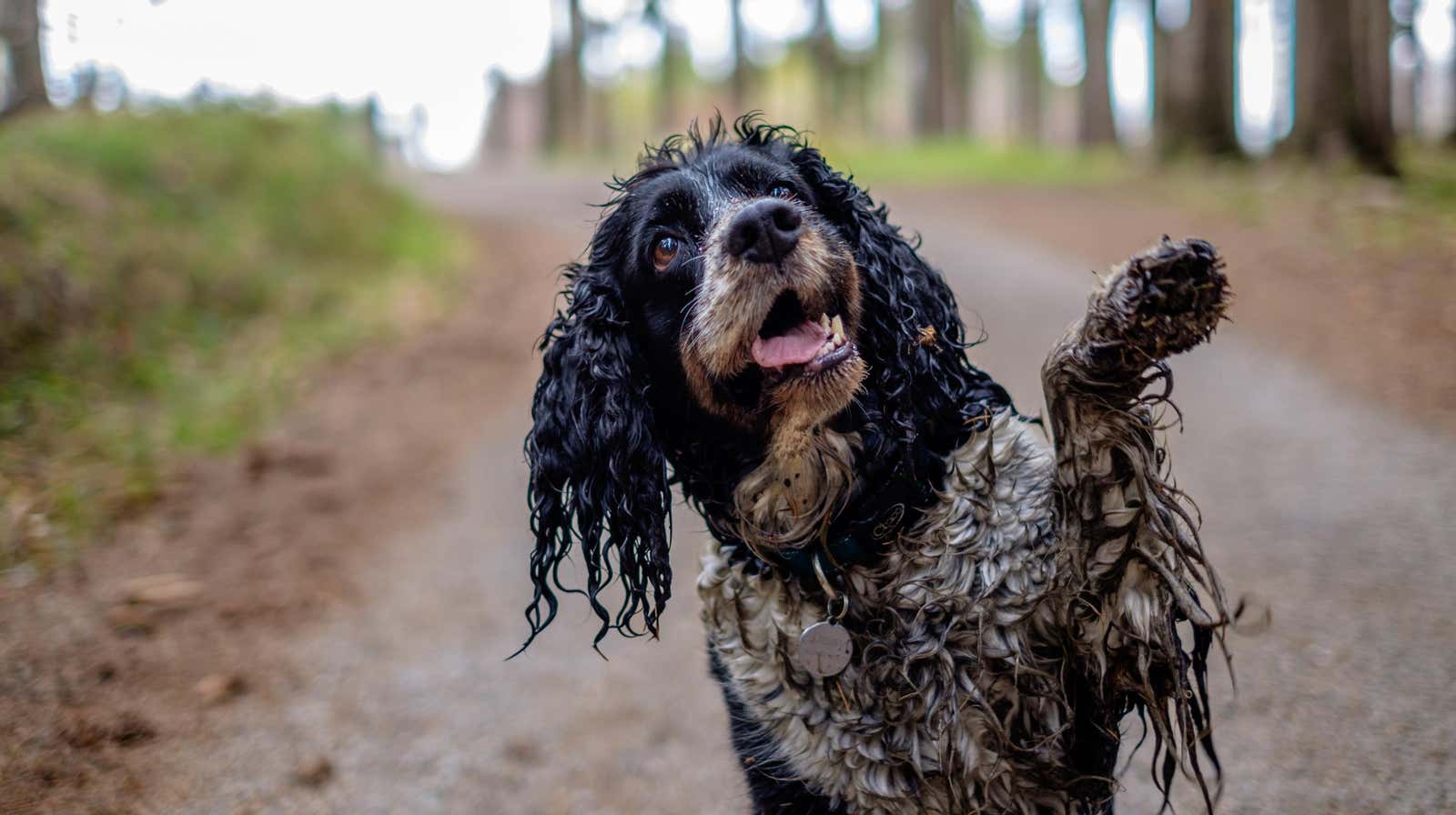Why Dogs Wallow in the Mud and How to Stop Them

You love your dog and your dog loves you, but your dog also loves dirt, perhaps as much as they love you. Your canine friend probably has a tendency to bury his face in fresh poop, or maybe they find piles of rubbish an attractive place to roll.
There is no definitive answer to the question of why dogs do this – you can ask a dog why they chose to choke their fur with rancid feces, but unfortunately, you will not get a satisfactory answer. However, there is ample scientific evidence that this is an evolutionary side effect of our domestic animals’ wild ancestors. And while nature is inevitable, there are things you, as a dog owner, can do to prevent this from happening.
Why does your dog roll around in smelly things?
Your beloved dog is part of a long evolutionary line of wild animals that have used poop and other rancid odors to deter predators. The dirtier they smell, the more foreign and less attractive they become. Or at least this is the leading theory: in 1986, there was a well-known study in the relatively sparse literature on dogs and faeces, in which it was found that wolves, in particular, prefer to cover themselves with odors (and therefore feces) other carnivores, such as cougars and black bears, feed over herbivores like sheep.
Many researchers suggest that the reason for this behavioral quirks is a desire to avoid falling prey rather than help in their own hunt for prey. Pat Goodmann, a researcher at Wolf Park in Indiana, told the BBC in 2017: “Here at Wolf Park, wolves eagerly smell alien canines and domestic cats. This increases the likelihood that wild wolves can smell a predator too. It won’t be a good hunting disguise.
Others speculate that this behavior is a communication tool used to convey information to the pack about potential predators lurking in the vicinity, or about a dead carcass that can be eaten. The Kennel Club of America summarized Goodmann’s findings:
Rolling in a decaying carcass or even fresher meat could be a way for the wolves to tell pack members, “Look what I found.” This behavior can help wolves track abandoned prey or simply exchange information about the environment.
Edward Blocker, a retired veterinarian, told Lifehacker that “this issue has been debated for quite some time among canine behaviorists.” He personally supports the theory that it is “nothing more than the result of an instinctive hunting practice that has been used for centuries and is still used today, as is the case with wild packs of dogs. It is as instinctive as if the person reached for a napkin when he felt that a sneeze was coming. “
However, the camouflage theory that dogs use disgusting odors to scare off predators has received widespread support. As noted by the BBC, University of Wisconsin researcher Max Allen concluded in 2016 that some foxes in Santa Cruz, California, rubbed the urine of a mountain lion to avoid being attacked by coyotes.
“Foxes can’t fight back, so they use the cougar scent to get some protection. The smell of the cougar can give them time to escape, ”he told the publication.
The behavior of some of your dog’s evolutionary cousins may explain why feces or other nasty substances get on their fur.
How to get your dog to stop rolling in feces
As the saying goes, shit happens, so don’t expect to never have to take an unexpected bath after a walk. But the surest way to reduce the likelihood of encountering dirt is to learn to understand well what memorization is. Recalling work – basically teaching your dog to show up right away when told to – is one of the easiest ways to do this, but bring toys that can distract your dog from his escape into the unknown, keep him on a leash, or both are complementary strategies that can help.
When it comes to solving a dilemma, Blocker discusses the fundamental differences between humans and dogs and our respective abilities to understand each other. “As humans, we look for good reasons and explanations for why dogs and other animals do what they do,” but usually, he notes, those answers are hard to come by.
If you want to train your dog to avoid dirt, he advises:
The most you can hope for is to be vigilant in catching them just before they are about to do so, and to correct the behavior through appropriate training with a simple strict (not angry) “no”, lightly tugging at the leash, and then distracting them. attention elsewhere.
No “long rants” about your dog, because dogs simply don’t act in the same evolutionary way as humans. “You can’t explain to an animal any more why they shouldn’t be doing something specific … than you can expect them to help you balance your checkbook,” Blocker says.
But you should probably prepare for the inevitable, which means you should know how to wash your dog well – something you should be doing regularly anyway . Find the right shampoo, put on rubber gloves, and start scrubbing. After all, owning a dog is a love affair; if they want to sometimes happily cover themselves with the mud of other animals, it is a small price to pay for the devotion they show you every day.